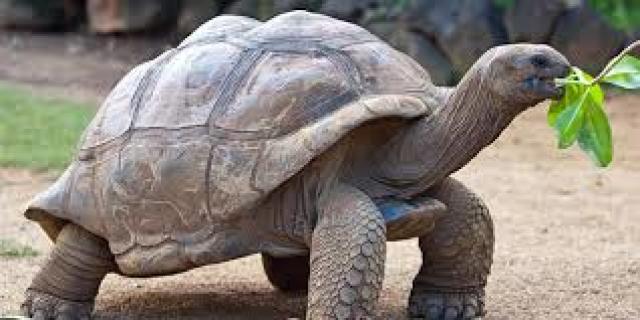Tortoises are reptile species which are different from other turtles by being land-dwelling while many other turtle species are at least partly aquatic. Like other turtles, tortoises have a shell to protect them from predators and other threats. Tortoise shells are generally hard, and they retract their necks and heads directly backwards into the shell to protect themselves.
Tortoises are unique among vertebrates in that the pectoral and pelvic girdles are inside the ribcage rather than outside. Tortoises can vary in dimension from a few centimeters to two meters long. They are generally reclusive animals and are the longest-living land animals in the world. In general, most tortoise species can live 80–150 years.
Most land-based tortoises are herbivores although some omnivorous species exist. Pet tortoises typically require grass and vegetable diets. Certain species consume worms or insects and carrion in their normal habitats. Different tortoise species vary greatly in their nutritional requirements.

